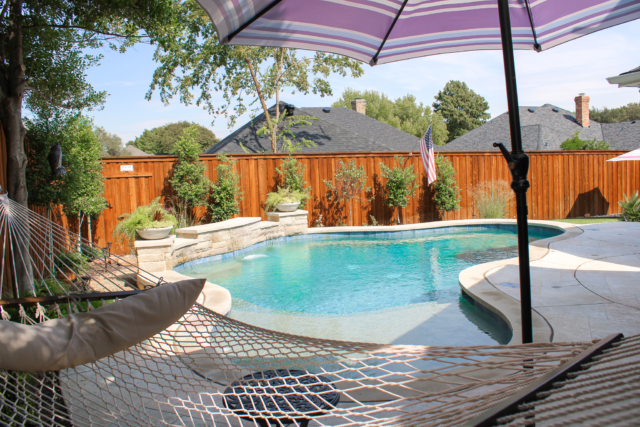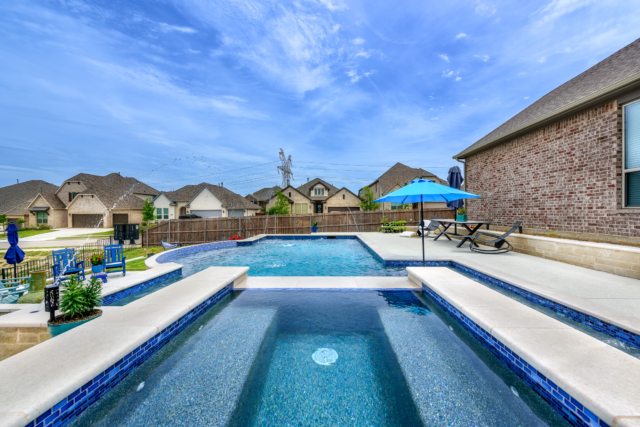How Does Rain Affect My Pool?
Once you’ve opened your pool for the season, you naturally want to enjoy your pool for as long as possible. The weather doesn’t always cooperate, and we can sometimes get heavy amounts of rainfall over the summer months.
When it does rain, you’re probably thinking that the only result is going to be that you won’t be able to use your pool as much or that it won’t be as nice to use it. So you may be surprised to discover that each time it rains, it can also have a negative impact on the water in your pool.
In this article, the Pulliam Pools team will discuss the surprising impact of rain on our pools and discover what we can do to make sure our pool water stays clean and safe in all weather.
How does rain affect my pool?
When it rains – especially if that rain is heavy or prolonged – it can have a number of different effects on your swimming pool, including changing the water’s pH balance, reducing the amount of chlorine, raising the water levels, and providing the right conditions for algae to flourish.
How does rain affect a pool’s chemical balance?
When rain falls into your pool water, it affects the chemical balance of the water by increasing levels of acidity and therefore reducing alkalinity – by as much as 5-10 ppm a day during heavy rain. Rain also leads to lower chlorine levels, so this is another thing to keep an eye on during bad weather.
But why would that be the case? Well, rainwater may be pretty much 100% pure as it starts its journey downwards from a cloud – with a near-perfect 7.0 pH reading – but it can pick up a lot on its way before it eventually splashes down in your pool.
Years of industrialization and burning fossil fuels means that our air contains higher levels of carbonic and sulfuric acids than it should, so that by the time rain hits the ground, its alkalinity level is close to zero.
Rainwater also collects other pollutants and contaminants as it falls, putting debris, leaves, and all sorts of organic matter into your pool water. This creates a higher demand for the chlorine, meaning that it gets used up more quickly and as a result needs more dosages.
Of course, to understand if your pool water’s chemical balance is out, you need to test it regularly – and you can find out how to do that by reading this previous blog.
Why is maintaining your pool’s pH balance important?
The pH reading of pool water (the balance between its acidity and alkalinity) should be kept between 7.2 and 7.8. Anything lower means that it’s too acidic and anything higher means there’s too much alkali. Either can be bad for your water quality, your pool equipment, and even the health of swimmers.
You can find out more about the importance of maintaining the right levels of chemicals in your pool water by reading our earlier blog on the subject.
How to prevent rainy days from ruining your outdoor oasis
Modern weather forecasting – while not 100% correct – is considerably more accurate than it used to be. This means that you will usually get advance notice of any bad weather, especially if there’s the potential for particularly heavy rain.
It’s also a good idea to increase your levels of chlorine ahead of heavy rain so that you can be confident of having enough to cope with the extra pollutants it will inevitably have to deal with afterward.
How Pulliam Pools can help
We can’t do anything that will affect the weather, but we can make regular weekly pool maintenance visits that will ensure your pool water always has the right chemicals in the right balance to keep you and your family safe.
Of course, we won’t just check your chemicals, we’ll also make sure your pool water is clean and keep a close eye on the condition of your essential pool equipment.
Call us now to find out more or fill in our weekly maintenance request form and we’ll be in touch to discuss your requirements as soon as we can.




